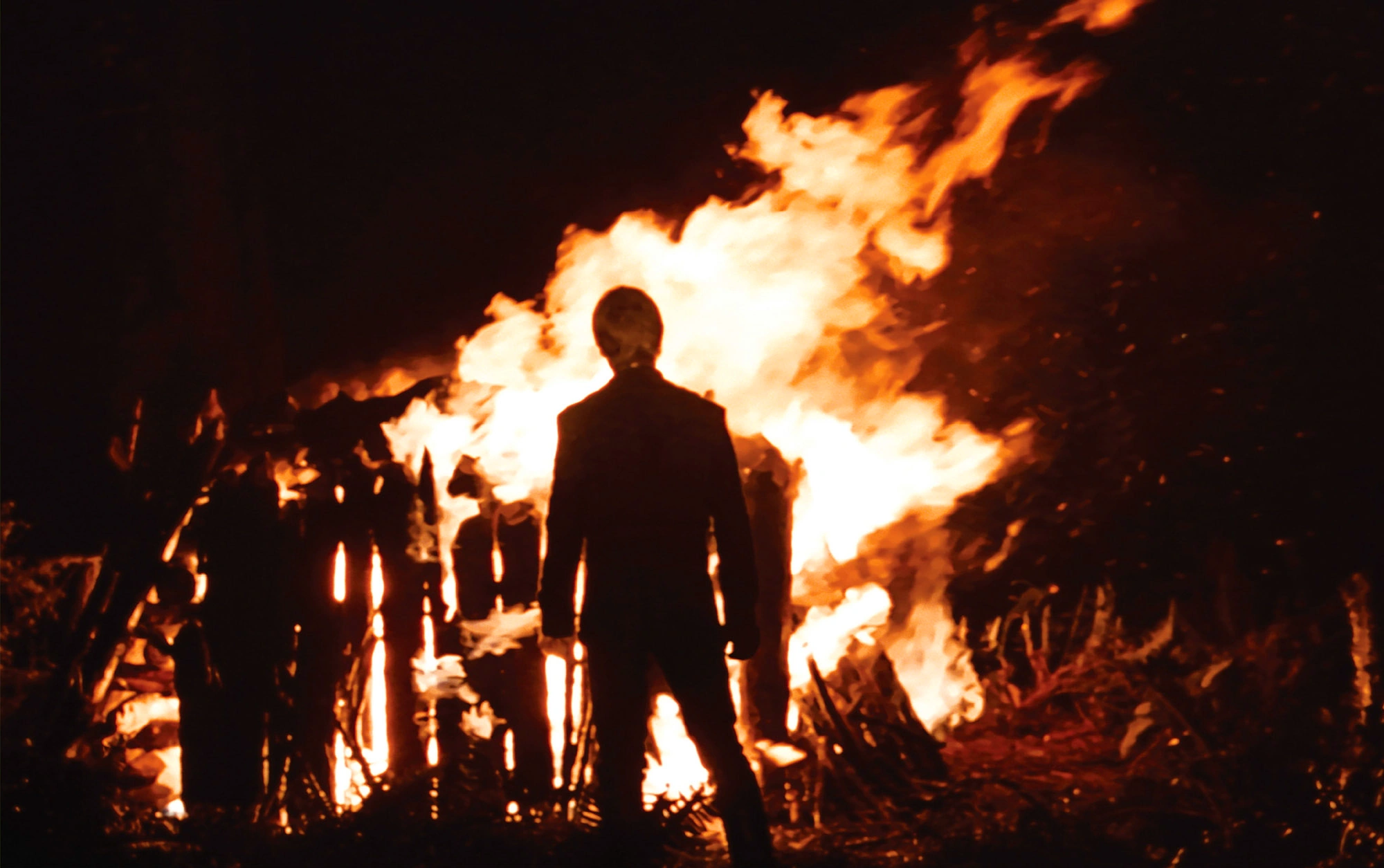
Introduction
There is so much to love in The Last Jedi; for example, the emotion-filled performances from the actors, the brilliant John Williams score, the spectacular visual effects, and the monumental battle sequences.
But for some reason, The Last Jedi has drawn criticism and become a lightning rod for division among fans.
The first time I saw it, there were aspects of the film that bothered me (but with which I later reconciled): the Marvel-esque humor, Holdo’s stubbornness in keeping her plan a secret (or divulging that she had a plan at all), and the fruitless diversion at Canto Bight, to name a few.

But I was surprised to realize that perhaps the biggest gripe many fans had with The Last Jedi was its treatment of the hero of the original trilogy, Luke Skywalker.
I was surprised because the portrayal of Luke in The Last Jedi, in my eyes, was near perfection. I had no qualms about it stepping out of the theater on December 14, 2017. (Ok, Luke throwing the lightsaber over his shoulder seemed irreverent, but I got over it.)
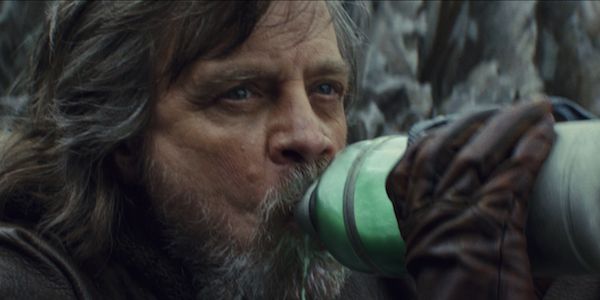
For context before I go on: I am a die-hard Star Wars fan. I grew up on the original, unaltered trilogy. I watched the films on VHS countless times before going to the theater in 1997 to watch the special editions on the big screen.
I know Luke Skywalker. I love Luke Skywalker. As much as any fan does.
And yet, I heard other fans say that Luke’s actions in The Last Jedi were “inconsistent” with his character. And while I respect everyone’s right to have their own opinion (and there’s no “right” or “wrong” way to react), I didn’t feel that way at all.
Rian Johnson's Choice
/cdn.vox-cdn.com/uploads/chorus_image/image/57985437/lastjedicover.0.jpg)
The way I see it, Rian Johnson essentially had two choices in The Last Jedi:
- Luke could have had a glorified cameo. He would have been the Ben Kenobi of A New Hope or the Yoda of The Empire Strikes Back: someone who was present and perhaps even had significant screen time, but not the focus, not the hero.
- Luke could be a true character in the film - a protagonist and a hero. Someone with an arc.
Johnson chose option 2, and we are blessed with Mark Hamill’s brilliant performance because of it.
At the same time, by so doing, Johnson condemned himself to the hatred of internet trolls everywhere. Because while the “sage wizard” may be universally loved, a “hero” can be divisive, because a hero makes mistakes.
Luke already had his arc in the original trilogy. He rose above his trials and flaws, and was enlightened. When we left him in Return of the Jedi, his journey was done - he was a fully realized Jedi.

Many fans came into The Last Jedi hoping to see the same Luke they left at the end of Return of the Jedi - not the flawed one they saw in A New Hope or The Empire Strikes Back or even in the throne room of Return of the Jedi.
Instead, we saw a Luke who was not perfect. We saw a Luke who still had further flaws - some recurring, others completely different from those we saw before.
But he overcame them! He (along with Rey) is the co-hero of The Last Jedi. The film is even named for him.
But there’s more. Even though we see a flawed Luke, his flaws are consistent with the flaws we saw before, even the "new" flaws. And I would argue that what some perceive as flaws are not actually flaws, but strengths.
Luke in the Original Trilogy
In the original trilogy, Luke’s strengths have always been 1) his hope and optimism and 2) his selflessness in caring for his friends.
His flaws are 1) his impatience and 2) his reckless focus on the future (“never his mind on where he was, what he was doing”).
In A New Hope, he moves forward after the death of his aunt and uncle to go on an “idealistic crusade” with Obi-Wan. He storms the detention area of the Death Star to rescue Leia. He shuts off his targeting computer and trusts his instincts to destroy the Death Star.
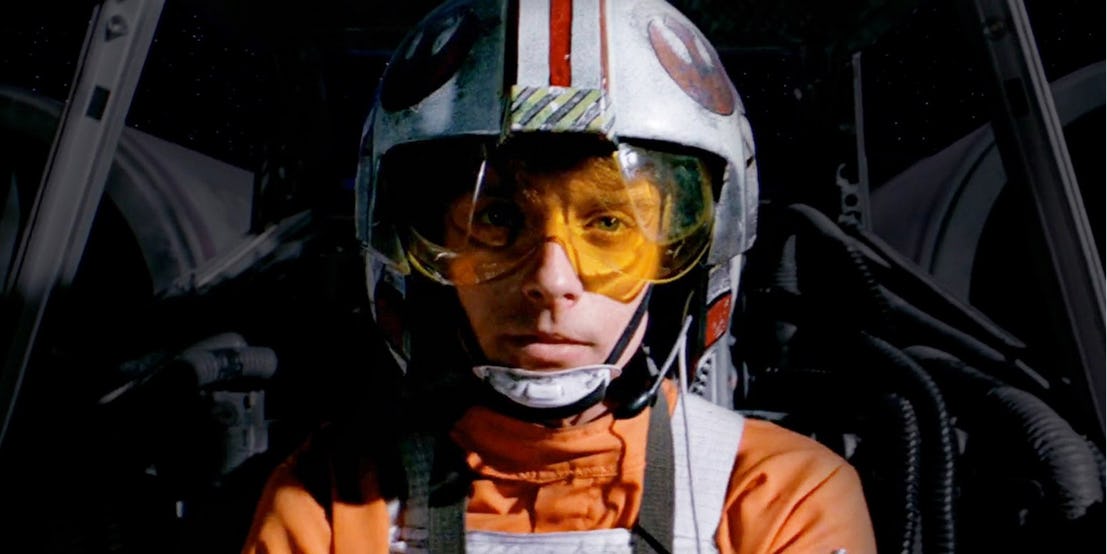
In The Empire Strikes Back, he rushes to confront Vader before completing his training; he escapes with his life but not without loss of limb. He fails to save his friend Han.
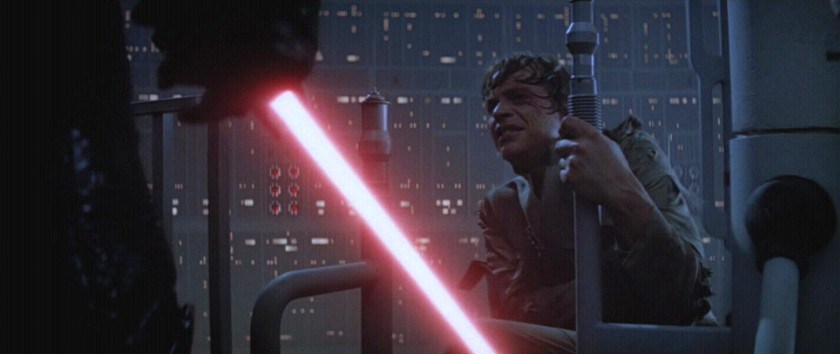
In Return of the Jedi, he sacrifices himself to Vader and the Emperor. When he leaves Endor, he knows he could die (“soon I’ll be dead, and you with me”), showing both his optimism that the rebels will succeed, and selflessness to allow the victory to proceed without him.

But he also loses his patience when fighting Vader and nearly crosses to the dark side, where it could "forever dominate his destiny," if not for finding the strength to turn away.

And so the Luke we see at the end of Return of the Jedi has learned to control himself in the moment, to overcome his passion, and to choose the path that will lead to the greater good, even if it results in his own death or destruction.
Luke in The Sequel Trilogy
The years pass. Luke builds a new Jedi order. But then one day, he again nearly gives in to his passion when he contemplates killing Ben Solo.
The moment “passed like a fleeting shadow.” As an enlightened Master, he wouldn’t have actually acted on the “moment of pure instinct,” a shadow of his younger self’s flaws.

But it was too late; Ben had seen his face and they both knew that Luke had failed him.
How frustrating it must have been for Luke to glimpse Ben’s future - to know that he would fail, just like the Jedi of generations before. The hubris of the Jedi, he realized, was incurable.
When the dust had cleared, Luke thought he knew what he had to do. The endless cycle of Jedi fighting the Sith couldn’t end with the Jedi being victorious; neither could it end with the domination of the Sith; The only way it could end with balance was for the Jedi to go willingly away.
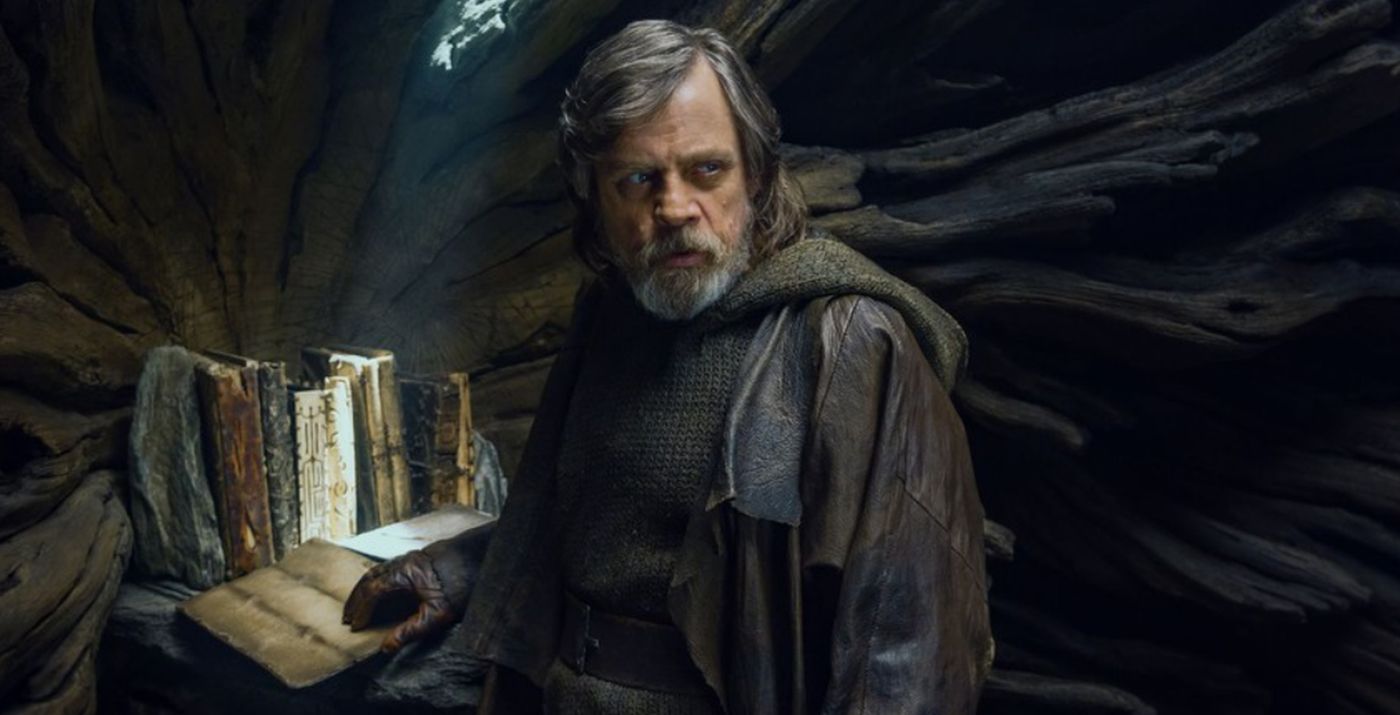
And so he again demonstrated his strengths by selflessly cutting himself off, knowing that the galaxy was in good hands with Leia leading the Resistance. He had hope that the light would prevail without him, just as the rebel fleet over Endor had prevailed despite his apparent sacrifice years before.
His new mission was one he alone could fulfill; he left the battling to others. Luke considered himself the "nuclear bomb" of the galaxy. He thought it better for him to be abolished, gone, shut away, rather than be accessible to either side as a weapon of mass destruction. Luke’s isolation on Ach-To was completely selfless.
But even in demonstrating his strengths, Luke was wrong. He needed Rey, R2, and Yoda to show him that.
/cdn.vox-cdn.com/uploads/chorus_image/image/57985437/lastjedicover.0.jpg)
At first, he tried to scare Rey off. He mistreated her, intentionally disgusted her, and just plain told her to leave. Her presence was jeopardizing his mission of isolation, and he was understandably frustrated.
But soon he came to see that by cutting himself off, he hadn’t stopped the march of darkness as he had hoped. The darkness, he learned, demands confrontation. Light needs to shine to inspire hope. People need heroes to look up to. Legends are real.
These are the lessons Luke learned, and the lessons Luke and his mentors teach us, over the course of the film.

The Last Jedi
And in the end, we get to see the Luke we were all hoping to see, and it is all the more fulfilling after enduring the first two acts without him.
And in the end, we get to see the Luke we were all hoping to see, and it is all the more fulfilling after enduring the first two acts without him.
Luke employs all the skills he has learned as a human, a warrior, a sage, and a Jedi and single-handedly prevents the First Order from apprehending the remaining Resistance fighters.
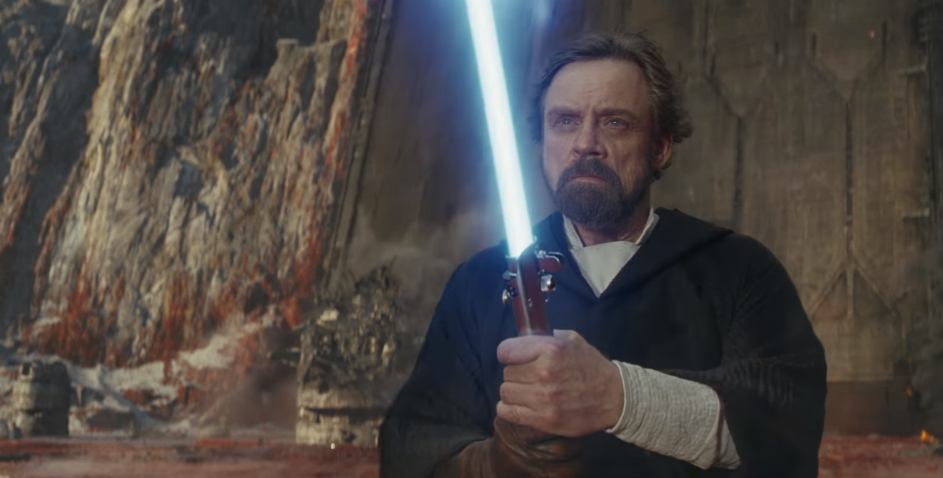
Luke is indeed the hero of The Last Jedi; he is the Last Jedi. Or at least, he was.
When Kylo insists that when he kills Luke, he will have killed the last Jedi, Luke responds, “Every word of what you just said is wrong.”
And with that, the torch has been passed to Rey. She had the most screentime in The Last Jedi (Luke being second) and is indisputably the main protagonist of the sequel trilogy; but arguably, The Last Jedi is Luke’s story.
And for the 11-year-old boy in me who thought that old VHS of Return of the Jedi was the last he’d see of Luke Skywalker, that’s more than I could hope for.
